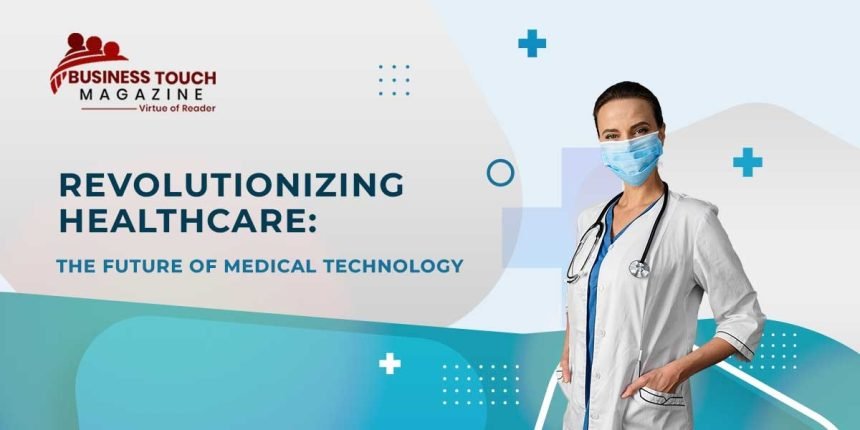Recent developments in medical technology have brought about significant shifts in both the provision of and access to healthcare. With new medical technology being developed all the time, it seems like the future of healthcare is going to be better than it has ever been. The medical industry is adopting technology in an effort to enhance patient outcomes, decrease expenses, and boost efficiency. This embrace of technology includes cutting-edge software programmes as well as novel medical gadgets.
The use of artificial intelligence is now one of the most exciting developments in the field of medical technology (AI). In the medical field, artificial intelligence algorithms are being utilised to evaluate data, look for trends, and bring new insights into patient situations. AI enables healthcare practitioners to make choices based on more complete patient data and to provide individualised treatment to each individual patient. For instance, AI may be used in the analysis of medical imaging in order to assist in the detection of early indications of cancer. In addition, AI is being used in the field of medical research in order to hasten the discovery of novel medications, enhance patient outcomes, and uncover new treatments.
Another important development in medical technology is telemedicine, which makes it possible for patients to get medical treatment from a distant location. Patients may have consultations with healthcare specialists through video conference, obtain diagnoses, and even receive treatment without ever having to leave the comfort of their own homes when telemedicine is used. During the COVID-19 pandemic, it has become increasingly crucial to have this equipment, since it enables patients to get treatment while simultaneously reducing the danger of exposure to the virus. It has also been shown that telemedicine may save overall healthcare expenditures while also improving patient satisfaction.
Moreover, wearable medical technology is making a significant impact on the healthcare industry. These gadgets have the ability to monitor vital signs, keep track of activity levels, and offer patients as well as healthcare practitioners feedback in real time. Wearable technologies are especially helpful for patients who have chronic diseases since they allow people to keep track of their symptoms and notify their healthcare providers of any significant shifts in those symptoms. For patients with diabetes, for instance, wearable technology can monitor their blood glucose levels, which enables both patients and their physicians to make prompt modifications to their treatment programmes.
The use of nanotechnology in the delivery of medications to certain locations inside the body is an intriguing new breakthrough in the field of medical technology. Since nanoparticles may be tailored to transport medications to particular cells or tissues, this has the potential to both lower the risk of adverse effects and improve the efficacy of therapy. Nanotechnology is being used, for instance, in the development of targeted cancer treatments. These therapies send medications directly to cancer cells, therefore reducing the amount of harm caused to healthy cells. In addition, nanotechnology is being used for the creation of novel diagnostic instruments, such as biosensors, which are able to recognise the first symptoms of illness.
Also, the healthcare industry is beginning to use blockchain technology. Blockchain technology allows for the safe storage of patient data and the seamless transfer of that data to other providers as and when it’s required. This technology has the potential to enhance patient outcomes while simultaneously lowering the risk of medical mistakes and enhancing care coordination. For instance, blockchain technology might be used to provide a safe and unchangeable record of a patient’s medical history. This would make it simpler for healthcare practitioners to make educated choices about the patient’s treatment.
To summarise, advances in medical technology are having a profound impact on the field of healthcare, which bodes well for the future. Better, more individualised treatment for patients is now possible because of developments in areas such as artificial intelligence (AI), telemedicine, nanotechnology, wearable devices, and blockchain technology. Exciting times are ahead for the medical field, and in the years to come, we may anticipate the introduction of even more ground-breaking medical technology. Nonetheless, it is essential to make certain that these technologies are created and deployed in a way that is both ethical and responsible, with the protection of patient privacy and safety as the utmost concerns.




